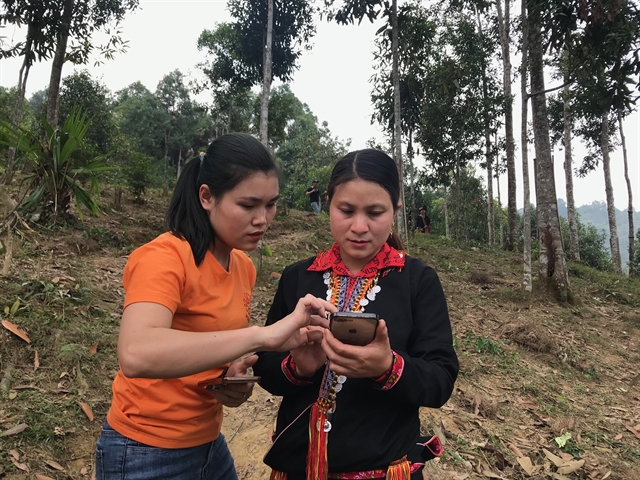The Australian Government-funded Gender Responsive Equitable Agriculture and Tourism (GREAT) Programme hosted an online training course on October 4, focused on promoting agricultural products and community-based tourism services on Lazada Viet Nam, one of the most popular e-commerce platforms in the country.

The Australian Government-funded Gender Responsive Equitable Agriculture and Tourism (GREAT) Programme hosted an online training course on October 4, focused on promoting agricultural products and community-based tourism services on Lazada Viet Nam, one of the most popular e-commerce platforms in the country.
The training course was attended by more than 70 representatives from the GREAT Programme, as well as government agencies, GREAT's business partners and ethnic minority women working in the agriculture and tourism sectors. They learnt how to promote and sell their products and services on Lazada’s e-commerce platform.
The training course is part of GREAT’s goals to address digital inclusion and strengthen the capacity of business partners and ethnic minority women, helping them to better connect with markets and improve business performance. Building digital skills is also integral to the GREAT Programme’s COVID-19 Response and Recovery plan to support local communities and businesses in rebounding from the impact of the COVID-19 pandemic.
Phil Harman, GREAT Team Leader, highlighted the importance of digital inclusion in the activities of partners and the potential to further empower women through greater digital inclusion.
“Digital skills are necessary business skills these days. However, COVID-19 has highlighted the digital divide for both women and ethnic minority communities. We are working to ensure that ethnic minority women have both the skills and tools needed to capitalise on e-commerce platforms, including Lazada,” said Harman.
James Dong, Chief Executive Officer of Lazada Viet Nam and Thailand said: “Being able to digitalise and pivot online has been a lifeline for many businesses – especially those in traditionally offline sectors such as agriculture and tourism. Women and ethnic minorities have suffered the brunt of the pandemic, so it is heartening to see programs like GREAT drive initiatives that equip businesses and communities to sell effectively on eCommerce platforms like ours. We believe this will also help mitigate the impact of supply chain disruptions and challenges in the long run for these groups.”
The GREAT Programme is a flagship of the Australian Government’s Aus4Equality portfolio. The programme is scheduled to run until December 31, 2021 with an investment of AU$33.7 million (nearly US$24.5 million) over four years. The provincial people’s committees of Son La and Lao Cai provinces are the programme’s key counterparts.
The programme is working with businesses, NGO's and government partners to build more inclusive business and market systems within the agriculture and tourism sectors in Son La and Lao Cai provinces. By ensuring that businesses benefit women and ethnic minorities more people can participate in, and thus benefit from, economic activities and growth.
It also advocates for greater gender equality, working directly with businesses, the government and NGOs to influence policies, attitudes and practice. — VNS





